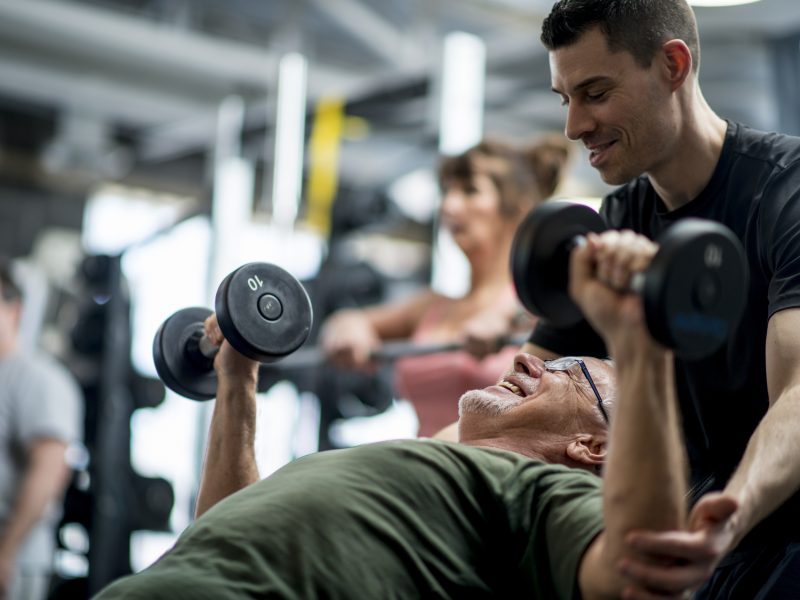
When I work out, part of the process is using and being a spotter. A spotter is someone who stands by you when you’re lifting weights, in case the weight gets to be too much and you start to lose your grip.
A spotter is there if needed, but most often you don’t need them. While a trainer may teach you proper form, a spotter helps you protect that form by giving you feedback if they see any issues. This enables you to increase your weights with less risk of injury.
That got me to thinking about how we need spotters in other areas of life as well, and what it means to be a good spotter.
Good spotters resist the urge to jump in too soon or take over. Some people I’ve spotted have gotten furious with me for doing that. That’s so analogous to leadership and to life, where it’s easy to jump in too soon or help too much.
Spotters don’t grab the bar and lift it up for you unless it’s an emergency. Instead, it’s about having a light touch – two fingers from each hand, just lightly placed to take enough weight off for the person to feel, “Okay, I’ve got this.” That’s usually all you need to take it the rest of the way.
A good spotter doesn’t need to be big or brawny. Sometimes a spotter doesn’t even need to touch the weights to be helpful. What they really need is to pay attention, encourage you, really listen to you, and respect your wishes. And of course, they need to be willing to set their own workout goals aside for a few minutes to come over and help you.
What does it do for the person lifting the weight to know the spotter is there? For me, it gives me the confidence to go to a greater weight, because I’ve got someone who’s going to step in if I need them.
In leadership, and not just now during a pandemic, we need to have that confidence and support to always be pressing the envelope and expanding to the edges. Otherwise, we’re just going to stay where we’re at.
Just as every coach needs a coach, it’s important for spotters to take care of themselves. At the gym, this means taking a “spotter stance” so you have the stability to do what you need to do. In leadership, it means having a stable baseline of wellness and self-care, so you won’t be knocked off balance by the challenges you’re supporting other people to meet. And having a spotter of your own.

 Letting It Happen
Letting It Happen
Stacey Mona Hamilton
Great article….This is a very helpful analogy for coaching and helping people through challenges. I will keep this and pass on to others.